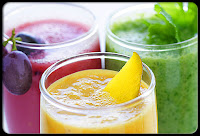Life's Little Questions Offer Big Brain Benefits
What's your goal today? And does it fit into your life plan? If these questions leave you scratching your head, then your brain might be suffering in more ways than one. In a recent study, older adults who had a strong sense of purpose in their lives were significantly less likely to develop Alzheimer's disease or cognitive impairment over the long haul. The Purpose-Driven Life What does having a purpose in life got to do with the price of eggs? Well, for one, it means that your actions and choices are guided by specific goals and desires. For another, it makes you more wired to look for meaning in personal events and experiences. And the piece de resistance of all this meaning-making? Researchers think it may help positively alter immune-system functioning in a way that benefits your heart and blood vessels. And that's good for your noggin. A Better Health Perspective Lots of things can add purpose and meaning to your life, whether it's settin...

